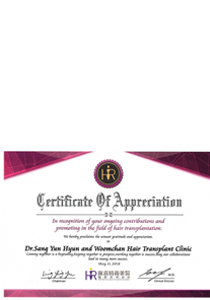Beard (Facial Hair) Transplant in Korea
At Woomchan Hair Transplant Clinics, we understand the growing importance of a healthy, full beard as a symbol of confidence and style. Sparse or patchy facial hair can be a common concern for men, and our beard transplant procedures are designed to help you achieve the full, natural beard you’ve always wanted.
What Is a Beard Transplant?
A beard transplant is a specialized facial hair restoration procedure where healthy hair follicles are extracted from a donor area, typically the back or sides of the scalp, and implanted into the beard or mustache area. This clinically proven method offers a permanent solution to facial hair loss and ensures a natural, fuller appearance.
How Does a Beard Transplant Work?
After your consultation with one of our certified hair transplant specialists, a personalized treatment plan will be created to suit your needs and schedule. On the day of the procedure, local anesthesia is applied to ensure comfort during the Follicular Unit Extraction (FUE) process. Hair follicles from the donor area—unaffected by hair loss hormones like DHT—are carefully extracted and implanted into the targeted areas of the beard.
What to Expect After the Procedure
Over the following months, the transplanted hair will grow naturally, blending seamlessly with your existing facial hair. The results not only provide a fuller beard but also promote continued growth, offering a long-term solution to patchy or sparse facial hair.
If facial hair loss is affecting your confidence, a beard transplant in Korea at Woomchan Hair Transplant Clinics is a trusted solution. Book your consultation today and take the first step toward a fuller, more defined beard!



